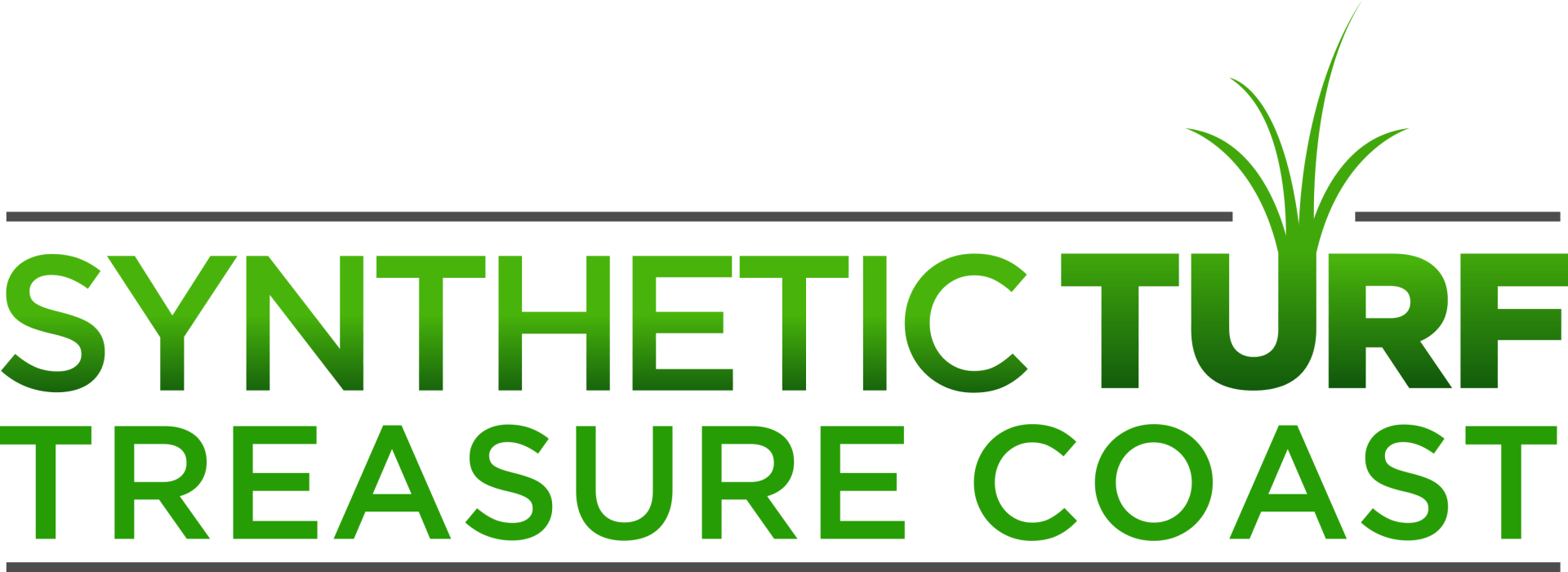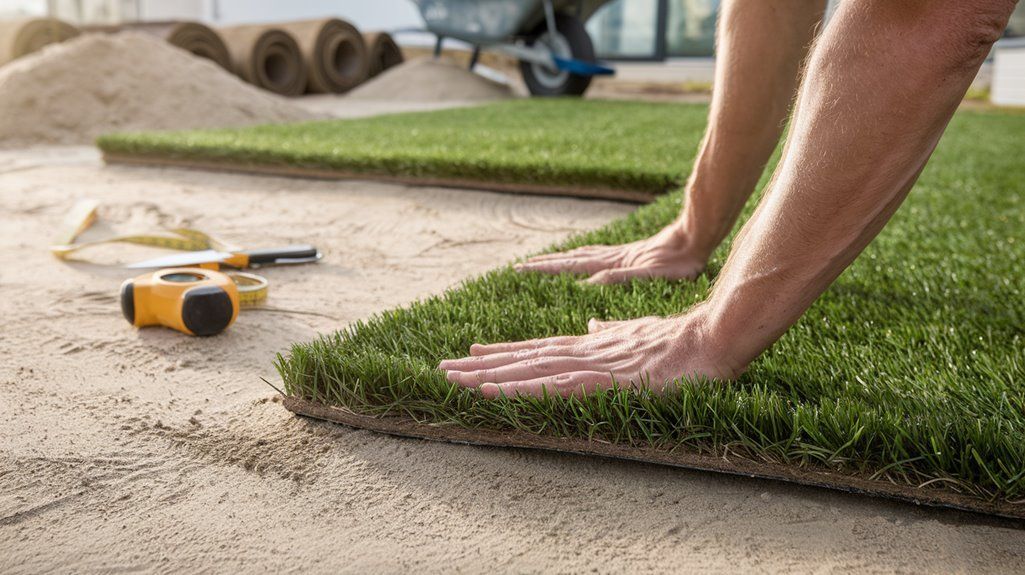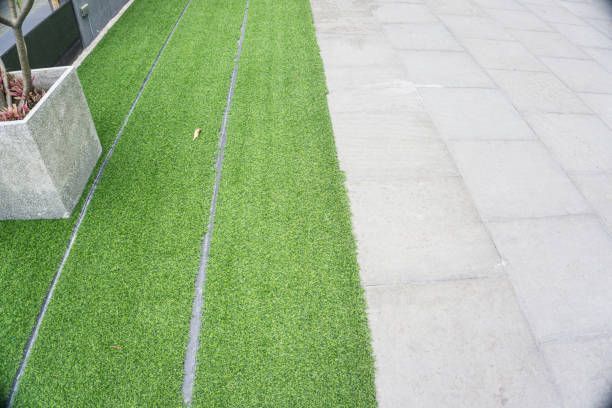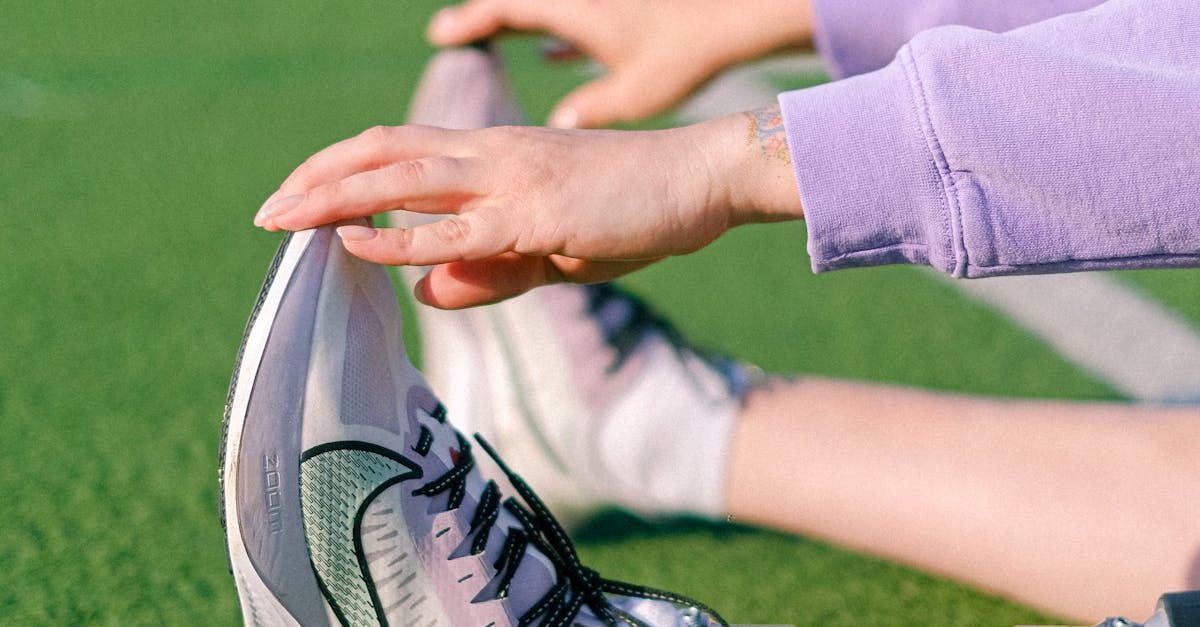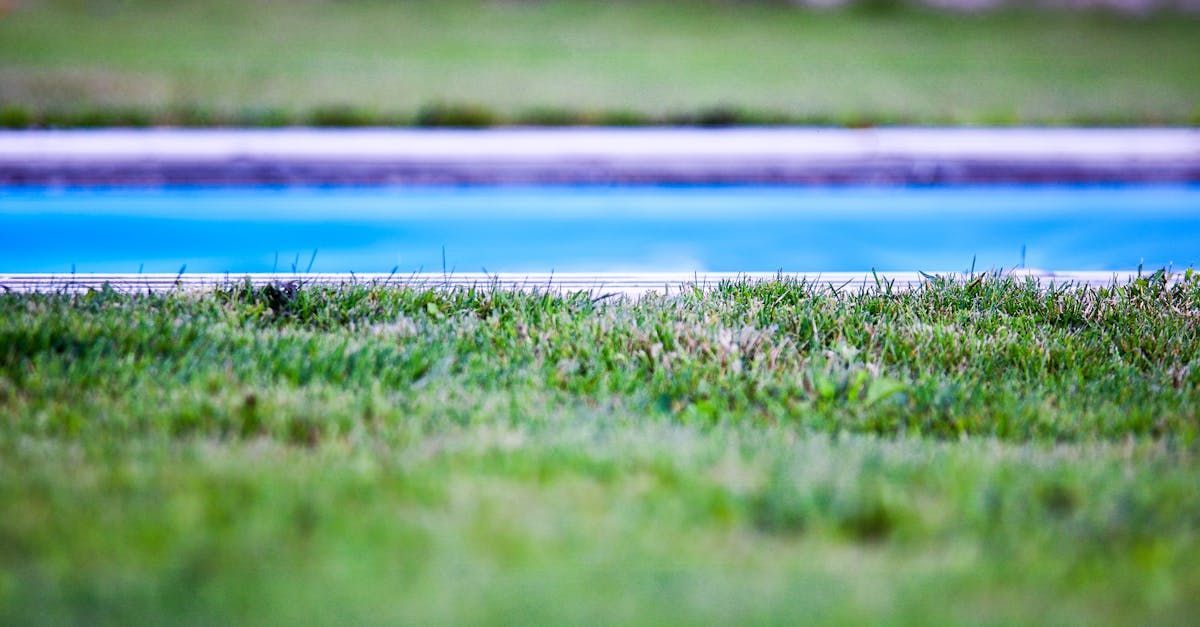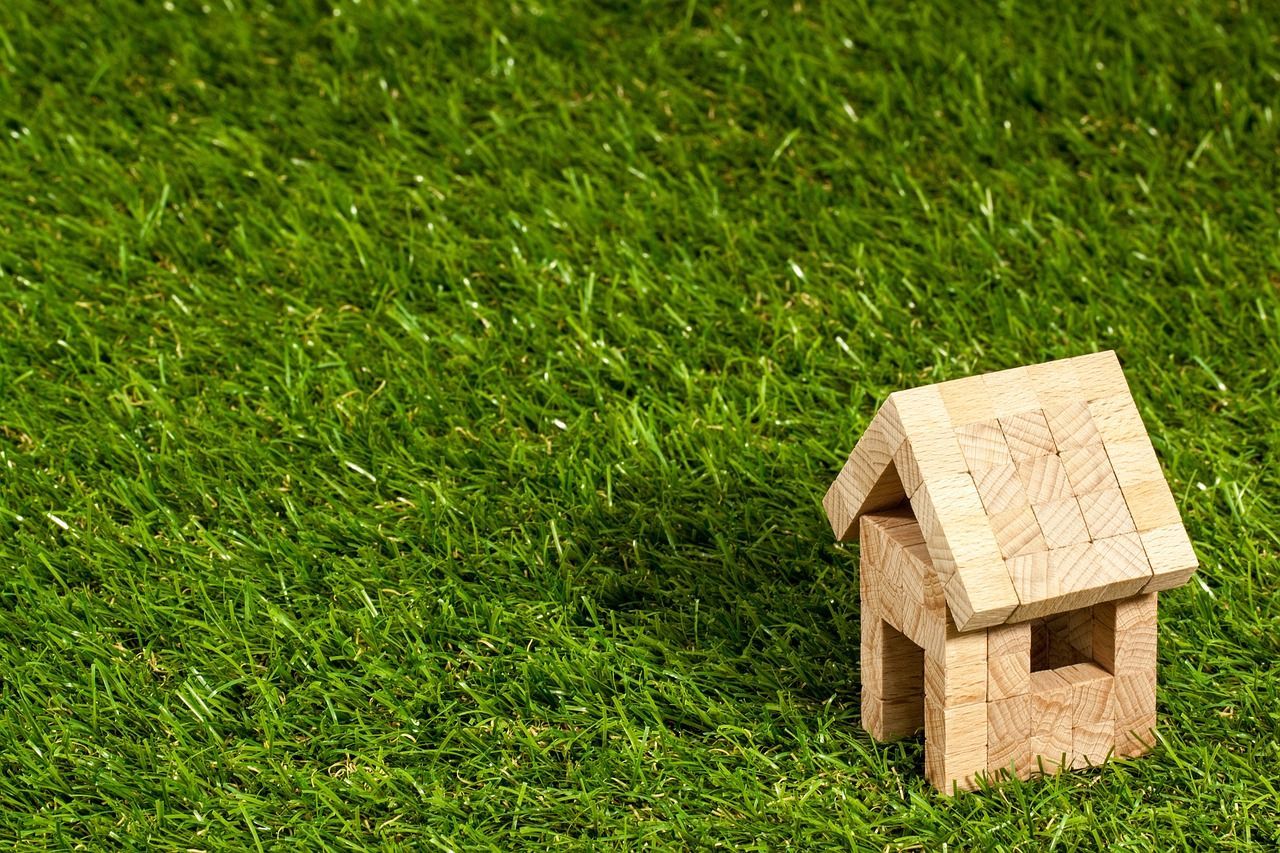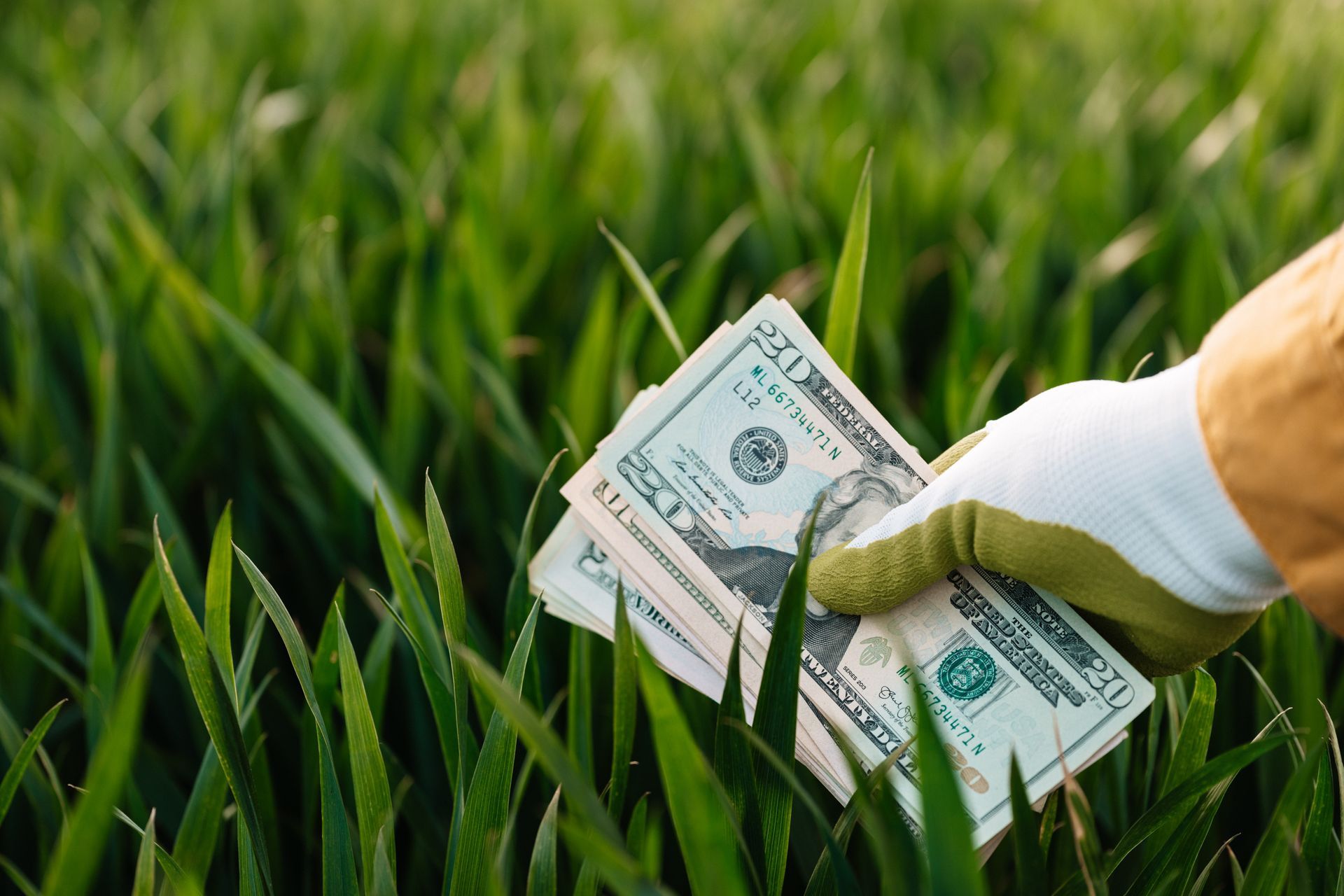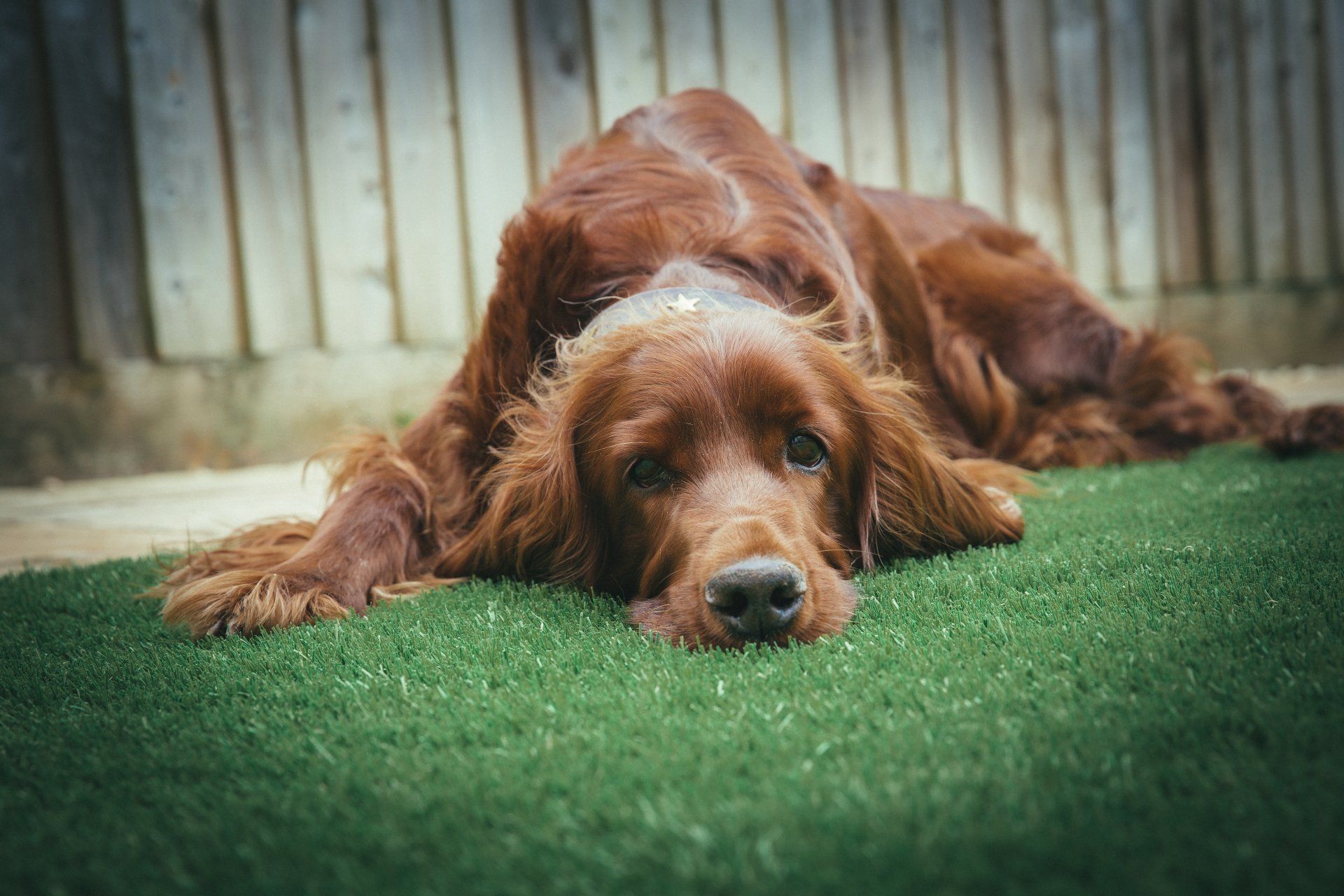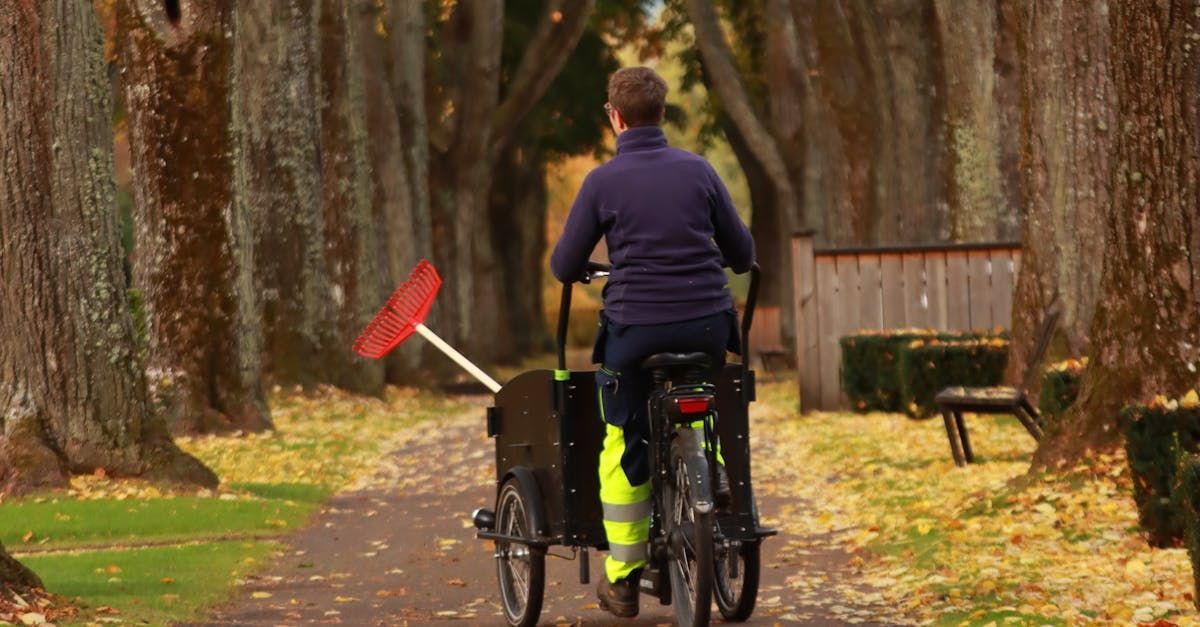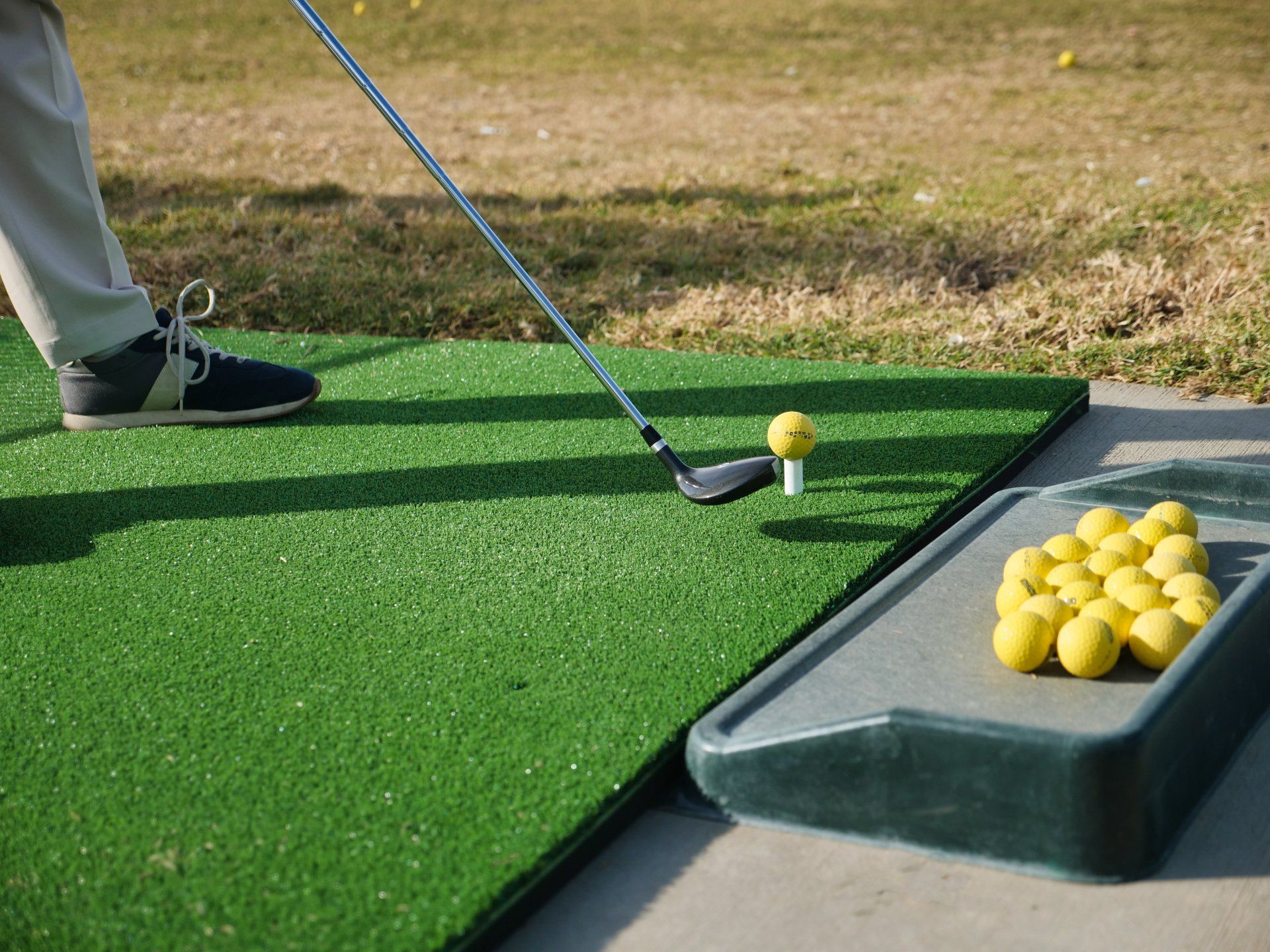Can You Vacuum Artificial Grass?
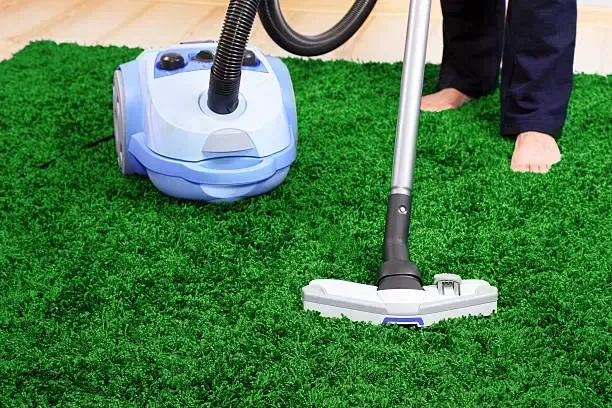
You shouldn’t vacuum artificial grass, as it can damage the fibers and disrupt the infill, effectively reducing your lawn’s lifespan and appearance. Instead, use plastic rakes, nylon brooms, or power sweepers to remove debris. For thorough cleaning, a garden hose or low-pressure power washer works well.
If you must vacuum, opt for a lightweight handheld model without rotating brushes, and use it gently for light debris only. Regular brushing, raking, and occasional rinsing are key to maintaining your synthetic turf’s quality. Proper care techniques and alternative cleaning methods can significantly extend your artificial lawn’s durability and keep it looking pristine.
In this blog we’ll explore how you can clean your artificial turf without vacuuming.
Key Takeaways
- Vacuuming artificial grass is generally not recommended as it can damage synthetic fibers and disrupt infill.
- Traditional vacuums with rotating brushes or beater bars can cause tears and uneven appearance in artificial turf.
- Specialized turf vacuums or lightweight handheld vacuums without rotating brushes are safer alternatives for light debris removal.
- Manual cleaning methods like plastic rakes, nylon brooms, and leaf blowers are preferred for maintaining artificial grass.
- If vacuuming is necessary, inspect the area first, use gentle techniques, and brush afterward to restore blade uprightness.
Understanding Artificial Grass Maintenance
Artificial grass maintenance involves regular cleaning and debris removal to preserve its appearance and longevity. Synthetic turf owners must incorporate these tasks into their lawn care routine.
Artificial grass doesn’t grow or regenerate like natural grass, making cleanliness crucial. Proper maintenance ensures the expected 12 to 15-year lifespan of artificial turf.
Cleaning artificial grass requires specific tools designed for synthetic turf maintenance. Traditional vacuums can damage grass fibers and disrupt infill material.
Texture loss and increased turf damage are potential risks of using regular vacuums. Plastic rakes, nylon brooms, or power sweepers are suitable alternatives for artificial grass.
These specialized tools help remove debris, dust, and pet waste without harming grass fibers.
Garden hoses or low-pressure power washers are effective for thorough cleaning. This method clears dust and stains while preserving the structural integrity of the grass.
Basic Care Requirements for Synthetic Turf
Synthetic turf maintenance relies on three fundamental care requirements. Regular brushing or raking keeps the blades upright and removes debris. This task improves the turf’s appearance and longevity.
Occasional rinsing with a hose clears dust and light debris. Prompt removal of larger debris prevents damage to grass fibers.
Essential steps for effective synthetic turf maintenance:
- Regular brushing or raking
- Water rinsing for cleanliness
- Quick removal of large debris
Vacuum cleaners can damage turf fibers and disrupt infill material. Stiff-bristled brooms or power brushes are better for regular cleaning.
These tools effectively remove debris without harming the grass. Mild detergents or specialized cleaners work well for stubborn stains or pet areas.
Common Cleaning Methods
Cleaning methods for synthetic turf require specific techniques to maintain its quality. Basic care forms the foundation of artificial lawn maintenance. Traditional vacuums should be avoided as they can damage turf fibers and infill material.
Gentler cleaning methods are preferable for synthetic grass maintenance. A plastic rake or nylon broom is ideal for removing debris without causing harm. These tools can gently brush the surface to lift leaves, twigs, and other materials.
Leaf blowers or power sweepers are effective for larger lawns. These devices collect debris quickly without disturbing the grass structure. Fall seasons benefit greatly from these tools due to increased leaf accumulation.
Garden hoses are sufficient for rinsing liquid waste or stubborn stains. Low-pressure power washers can be used for deeper cleaning with caution. Excessive force should be avoided to prevent turf damage.
Pet owners must clean up waste promptly to maintain artificial grass. A 1:1 solution of water and vinegar effectively neutralizes odors and stains. This mixture is safe for synthetic grass and tackles unpleasant smells effectively.
Is Vacuuming Safe for Artificial Grass?
Vacuuming artificial grass isn’t always a safe cleaning method. You should exercise caution when considering this approach.
Strong vacuum cleaners can potentially damage synthetic fibers. They may cause tears or create an uneven appearance in your turf. The infill of artificial grass can also be disrupted by vacuuming.
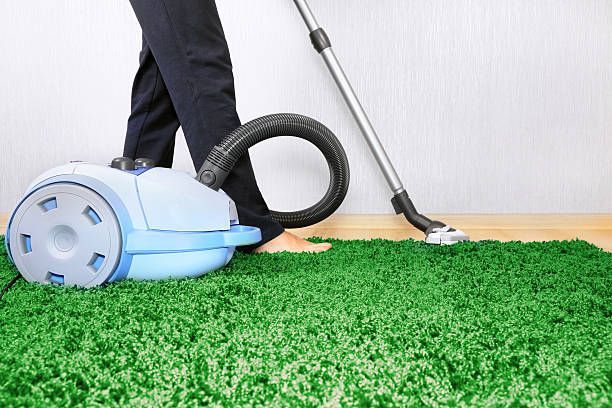
Traditional vacuum cleaners pose risks to artificial grass. Their beater bars or stiff brushes can fray or dislodge fibers. This damage can compromise the integrity of your synthetic lawn. Safer alternatives exist for maintaining your artificial grass.
Recommended cleaning methods for artificial grass include:
- Using a stiff-bristled broom or power brush
- Rinsing the turf with water
- Employing a specialized turf vacuum designed for professional use
Light debris removal can be achieved with a gentle vacuum. The longevity of your artificial grass should be your primary concern.
Cleaning methods that don’t risk damaging the turf are generally preferred. Your lawn’s appearance and performance rely heavily on the infill.
Aggressive vacuuming can have long-term consequences for artificial grass. It may disrupt the infill and compromise the lawn’s structure. You should prioritize cleaning methods that preserve the integrity of your synthetic turf.
Types of Vacuums Suitable for Synthetic Turf
Vacuums for synthetic turf require careful selection to avoid damaging artificial lawns. Traditional vacuums can harm synthetic grass, but specific types are designed for this purpose.
Lightweight handheld vacuums without rotating brushes are suitable for artificial grass cleaning. These devices gently remove surface debris without causing damage to turf fibers. They excel at quick cleanups and spot cleaning tasks.
Specialized turf vacuums are ideal for larger areas or thorough cleaning sessions. These machines preserve turf fiber integrity while efficiently removing debris from synthetic grass. Large artificial lawn owners may benefit from investing in a specialized turf vacuum.
Vacuum cleaners with beater bars or stiff brushes should be avoided on artificial grass. These features can potentially cause long-term damage by fraying or dislodging turf fibers.
Bagless vacuums require cautious handling when used on synthetic turf. They can separate debris from infill but may disrupt the grass’s texture if not used carefully.
Users should check for loose or damaged fibers before vacuuming to prevent worsening existing issues.
Potential Risks and Precautions
Artificial grass vacuuming poses significant risks to your synthetic lawn’s longevity. The infill can be easily disrupted by strong suction. This disruption affects the lawn’s appearance and functionality.
Vacuums can be damaged by tough artificial grass fibers. Rotating brushes or beater bars may fray or dislodge synthetic fibers. These issues can create an uneven appearance and compromise turf integrity.
You should assess your artificial grass condition before considering vacuuming. Look for:
- Loose or damaged areas
- Exposed seams or edges
- Uneven distribution of infill
Gentler cleaning methods are preferable for damaged areas. A stiff-bristled broom or specialized artificial grass rake works well.
Vacuuming should be limited to light debris removal only. Heavy debris should be removed manually to minimize damage risk. Regular vacuuming can lead to sagging or shifting of the turf.
Precautions help ensure your artificial grass remains in top condition. Proper care extends the lifespan of your synthetic lawn.
Alternative cleaning methods are often safer and more effective.
Effects of Improper Vacuuming on Artificial Grass
Damage to Grass Fibers
Improper vacuuming techniques can harm your artificial grass. Harsh bristles or powerful suction may cause the grass blades to fray or break. This damage reduces the lifespan of your fake grass and affects its appearance.
The grass looking new and pristine becomes a challenge with improper maintenance.
Displacement of Infill Material
Vacuuming synthetic grass incorrectly can displace the infill material. The infill keeps the turf stable and provides cushioning.
Excessive suction power may remove this essential component. The grass area loses its support and becomes less comfortable to walk on. Maintaining synthetic turf requires careful consideration of infill preservation.
Uneven Surface
Aggressive vacuuming can create an uneven surface on your artificial lawn. Some areas may become more compressed than others. This unevenness affects the overall look and feel of your landscape. The grass blades stand at different heights, compromising the uniform appearance.
Reduced Drainage Capability
Improper vacuuming methods can impact the drainage system of your artificial grass. The turf with infill relies on proper drainage to prevent water accumulation.
Harsh vacuuming can compact the infill, reducing its ability to drain effectively. This issue may lead to water pooling and potential odor problems.
Vacuum Cleaner Damage
Planning to use a vacuum on artificial grass can also damage your cleaning equipment. The synthetic fibers and infill material may clog the vacuum's mechanisms.
This clogging can lead to overheating and potential breakdown of your vacuum cleaner. A specialized artificial grass cleaner is a safer alternative for maintenance.
Ineffective Cleaning
Improper vacuuming techniques often result in ineffective cleaning. The grass looking new requires appropriate methods for removing debris and pet waste. Incorrect vacuuming may miss small particles or fail to address issues like dog urine. Effective cleaning and maintenance are crucial for keeping your artificial turf in top condition.
Best Practices for Vacuuming Artificial Grass
Artificial grass vacuuming requires specific techniques to protect your lawn. You should choose a lightweight vacuum without a rotating brush. This approach prevents damage to turf fibers.
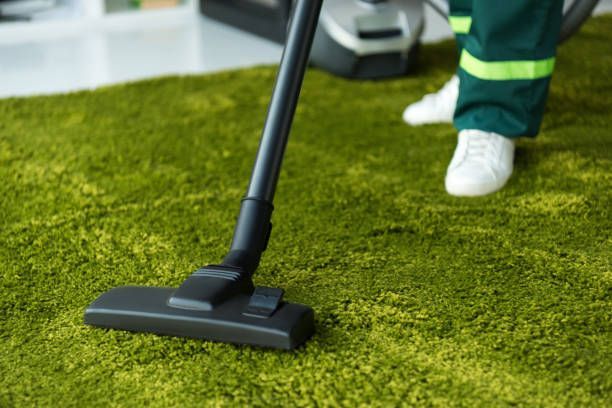
Inspection of the area is essential before vacuuming. You must remove large or sharp debris to avoid tears. Dry conditions are ideal for vacuuming artificial grass.
Vacuuming helps maintain your lawn’s appearance by removing light debris. Other cleaning methods are still necessary for thorough maintenance. Regular rinsing and brushing remain crucial for optimal care.
Brushing after vacuuming is important for lawn appearance. A soft-bristled brush lifts the blades and restores their upright position. This step ensures your artificial lawn looks pristine.
Vacuuming is one part of a comprehensive maintenance routine. Other cleaning products and methods are needed for artificial grass care. These practices preserve your lawn’s quality and longevity.
Alternative Cleaning Methods
While vacuuming isn’t recommended for artificial grass, you’ve got several effective alternatives.
For professional-grade maintenance, you can invest in specialized turf cleaning tools designed to protect your lawn’s fibers and infill.
If you prefer manual options, you’ll find that plastic rakes, nylon brooms, and even handheld leaf blowers can efficiently remove debris without causing damage.
Professional Turf Cleaning Tools
Professional turf cleaning tools offer a safe alternative to traditional vacuums for artificial grass maintenance. These specialized tools remove debris without damaging the turf or disturbing infill material.
Homeowners can choose from various options tailored for different lawn sizes and needs.
Turf Vacuums
Turf vacuums are powerful machines commonly used in sports stadiums for efficient debris removal. They can effectively clean large areas of artificial grass, removing leaves, trash, and rubber infill.
Handheld vacuums with adjustable suction provide a more manageable solution for homeowners with smaller lawns.
Power Sweepers
Power sweepers are available in manual or energy-powered versions for quick debris collection. They offer thorough cleaning on expansive lawns while preserving the synthetic turf’s integrity.
Homeowners can select the appropriate size and type based on their lawn dimensions.
Key Considerations
- Professional turf cleaning tools are engineered for safe artificial grass maintenance.
- Tools come in various sizes to accommodate different lawn dimensions.
- Many tools combine multiple cleaning techniques for comprehensive care.
Manual Cleaning Options
Artificial grass maintenance doesn’t always require specialized equipment. Manual cleaning methods can be effective and gentle on synthetic turf. Several simple tools and techniques can keep your artificial lawn looking pristine.
A plastic rake designed for synthetic turf is essential. This tool dislodges trapped debris while keeping grass fibers upright and intact.
Soft-bristled brooms are ideal for dust and smaller particles. Gentle sweeping removes unwanted matter without damaging the surface.
Manual removal works best for larger debris like leaves and branches. Spot cleaning with water and mild detergent tackles stubborn stains or spills. Careful application and thorough rinsing prevent residue buildup on the surface.
Handheld leaf blowers offer quick and efficient clean-up for lightweight debris. This tool saves time and effort in maintaining your artificial grass.
Regular use of these manual cleaning methods ensures a beautiful, clean lawn. These techniques eliminate the need for potentially harmful vacuum cleaners. Your artificial grass will remain in top condition with minimal effort and expense.
When to Seek Professional Cleaning
Your artificial grass may need professional attention if you notice persistent odors, severe staining, or drainage issues that regular cleaning can’t resolve.
Professional services can effectively address these problems, restore your turf’s appearance, and prevent long-term damage.
Signs Your Turf Needs Expert Care
Artificial grass may require professional attention over time. Persistent odors or stains from pet waste can indicate a need for expert cleaning. Professional services ensure thorough treatment and restore your turf’s freshness.
Signs of artificial grass needing expert care include:
- Significant debris accumulation affecting the turf’s appearance
- Infill displacement changing the turf’s feel
- Matted down or flattened grass fibers despite regular maintenance
- Drainage issues, such as pooling water or slow drainage
Experts can address underlying problems and revitalize your lawn’s texture. They inspect for potential drainage issues that could compromise turf integrity.
Professional maintenance ensures efficient upkeep of your lawn’s longevity and appearance.
Artificial grass maintenance can be time-consuming for homeowners. Professional services offer a solution for those struggling with regular upkeep. They efficiently maintain your lawn’s condition for years to come.
Benefits of Professional Maintenance
Professional maintenance offers numerous advantages for artificial grass owners. Experts can effectively remove pet hair and odors from your lawn. They can address issues that may go unnoticed by homeowners.
Professionals can fluff flattened grass and check for drainage problems. They’re equipped to handle infill compaction issues.
Regular professional care saves time and money in the long run. Early problem detection prevents costly repairs or replacements later.
Professional cleaning services use safe methods for specific artificial turf types. Their expertise ensures a beautiful, low-maintenance lawn year-round.
• Extended lifespan and performance of artificial grass
• Fresher environment for pets and family
• Prevention of potential damage
• Maintenance of optimal turf performance
• Time and cost savings
• Reduced risk of damage from DIY attempts
• Year-round beautiful lawn appearance
Get Expert
Artificial Grass Maintenance from Synthetic Turf TC
Expert maintenance is crucial for keeping artificial grass in top condition. Synthetic Turf TC offers specialized services that address the unique needs of synthetic turf. Their comprehensive approach ensures your artificial lawn stays pristine for years.
Synthetic Turf TC employs a team of skilled professionals for artificial grass maintenance in Florida. They use specialized equipment and techniques to clean synthetic grass without damaging fibers or infill. This method preserves the integrity and appearance of your turf.
Professional pet waste removal is a standout service offered by Synthetic Turf TC. This service keeps your artificial lawn hygienic and odor-free, especially for pet owners.
Expert maintenance is an investment in the longevity of your synthetic turf. Synthetic Turf TC’s methods prevent common issues like infill compaction and uneven surfaces.
Their trained staff removes dirt and debris effectively while preserving the turf’s structure.
DIY methods can risk damaging your artificial grass. Synthetic Turf TC’s professionals ensure your lawn looks pristine and functions perfectly year-round.
About the author
Kathy Leavell
Kathy Leavell is the founder and owner of Synthetic Turf Treasure Coast, a leading provider of synthetic grass solutions for residential and commercial properties in Florida. With over a decade of experience in the industry, Kathy has become a recognized expert in synthetic turf installation, maintenance, and repair. Under her leadership, Synthetic Turf Treasure Coast has earned a reputation for exceptional customer service and high-quality workmanship.
Prior to starting her own business, Kathy worked in sales and marketing roles at several major synthetic turf manufacturers.
